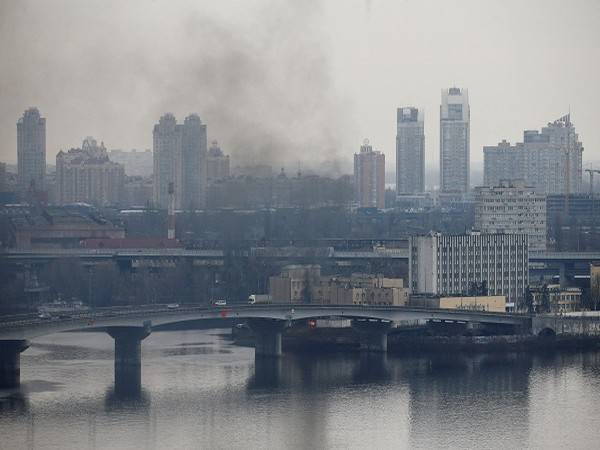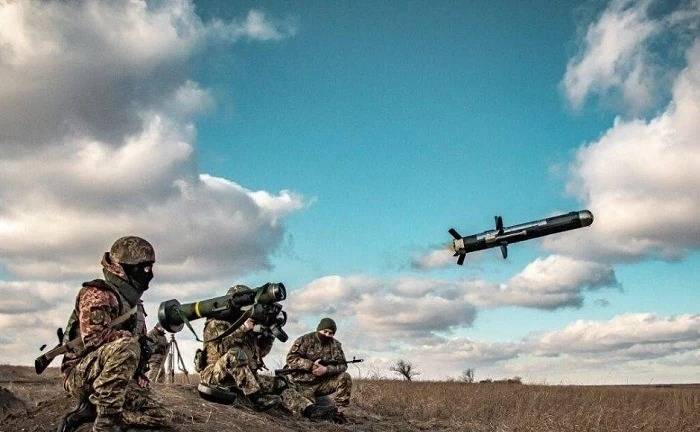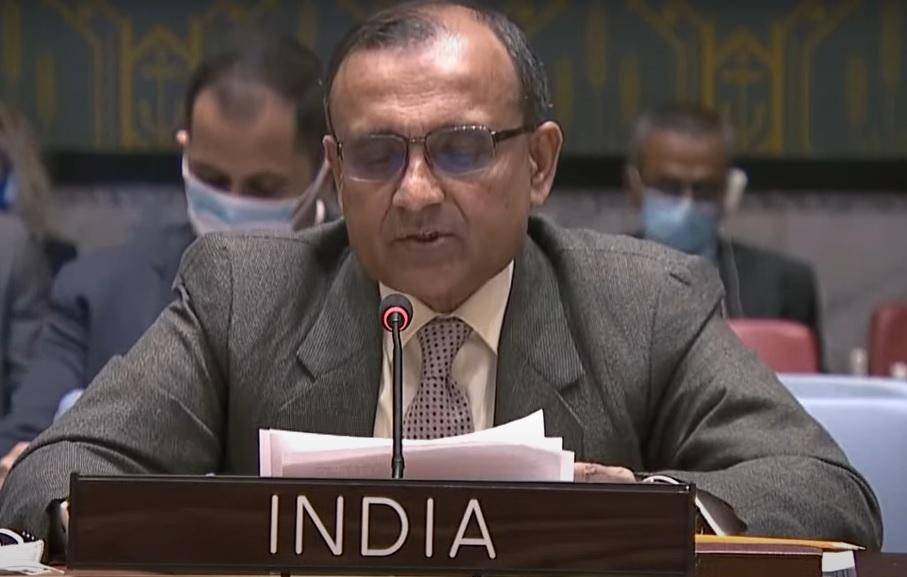India’s vote on that resolution calling for unfettered humanitarian access to Ukraine. would be closely watched, as would its stance in the Assembly…writes Arul Louis
India has abstained for the third time on a Security Council vote on Ukraine and said that it welcomed the decision by Ukraine and Russia to hold talks.
As if acting as an Asian bloc, India was joined by the two others from the continent, China and the United Arab Emirates, to be the only countries to abstain on Sunday on a procedural vote to have the 193-member General Assembly take up the Russian invasion of Ukraine at an emergency meeting.
Russia’s negative vote did not have the power of a veto and it passed with the support of 11 members from Europe, the Americas and Africa in the 15-member Council.
This is the first time the Council has called for an emergency meeting of the Assembly in 40 years — the last one was in 1982 after the US vetoed a resolution on the Israeli occupation of the Syrian Golan Heights.

The General Assembly is scheduled to meet for the emergency session on Monday at 10 a.m. local time (8.30 p.m. in India) and consider a resolution condemning Russia’s invasion of Ukraine and demand it withdraw its troops immediately that had been vetoed by Russia in the Security Council on Friday.
India had abstained on a procedural vote in January and on the resolution on Friday.
India’s Permanent Representative T.S. Tirumirti said that “it is regrettable that the situation in Ukraine has worsened further since the council last convened on this matter”.
“We reiterate our call for immediate cessation of violence and an end to all hostilities. There is no other choice but to return back to the path of diplomacy and dialogue,” he said.
Welcoming the announcement by Ukraine and Russia to hold talks at the Belarus border, Tirumurti said that Prime Minister Narendra Modi had “strongly advocated” this course of diplomacy when he spoke with Russia’s President Vladimir Putin on Friday and with Ukraine’s President Volodymyr Zelentsky on Saturday.
The US had suggested that India and other countries having influence with Moscow to get it to stop the invasion.

Acknowledging India’s “distinct” relationship with Russia, US State Department Spokesperson Ned Price said on Friday that the US wanted it to use its leverage with Moscow to influence it to uphold international norms.
US Permanent Representative Linda Thomas-Greenfield said after Sunday’s vote that holding Russia accountable for its actions “will take some courage from some fellow member states”.
“We need to take extraordinary actions to meet this threat to our international system and do everything we can to help Ukraine and its people,” she said.
Tirumurti raised the plight of the Indian citizens stranded in Ukraine, where Russian troops have been advancing while facing resistance from Ukrainians.
He said, “Our evacuation efforts have been adversely impacted by the complex and uncertain situation at the border crossings. It is important to maintain an uninterrupted and predictable movement of people.”
“It is an urgent humanitarian necessity that must be immediately addressed,” he stressed.
That matter is expected to be taken up on Monday at a Council meeting proposed by French President Emmanuel Macron to discuss the humanitarian situation in Ukraine.
France’s Permanent Representative Nicolas de Riviere said that his country and Mexico would present at that session a resolution calling for unfettered humanitarian access to Ukraine.
India’s vote on that resolution would be closely watched, as would its stance in the Assembly.
The resolution passed on Sunday is based on the “Uniting for Peace” resolution passed in 1950 by the Assembly for situations where the Council cannot act because the permanent members cannot agree and resulting in a “failure of the Security Council to discharge its responsibilities”.
When the Council passes a resolution calling for an emergency session of the Assembly, it meets to take it up and recommend action to UN members.
Unlike Council actions, the Assembly resolutions that can be passed by a simple majority are not enforceable but carry political and moral weight.
The Uniting for Peace resolution was adopted after the Soviet Union’s vetoes of resolutions on the Korean situation.

When the Council makes the referral, the Assembly has to take it up in 24 hours.
In addition, the General Assembly can also call for an emergency session.
There have been only 10 emergency sessions of the Assembly of both types and last one was in 1997, when the US vetoed a resolution on Palestine — but that was convened by the Assembly without a Council resolution.
The Security Council had not called for an Assembly emergency session since 1982.
The last time the General Assembly took up a matter relating to Ukraine was to pass a resolution in 2014 in support of that country’s territorial integrity.
But that was not in an emergency session.
The resolution was adopted with 100 votes, while there were 11 votes against and India was one of the 58 countries that abstained.
The US and its allies are frenetically working to get more countries to support the new resolution on Ukraine.

Leave a Reply